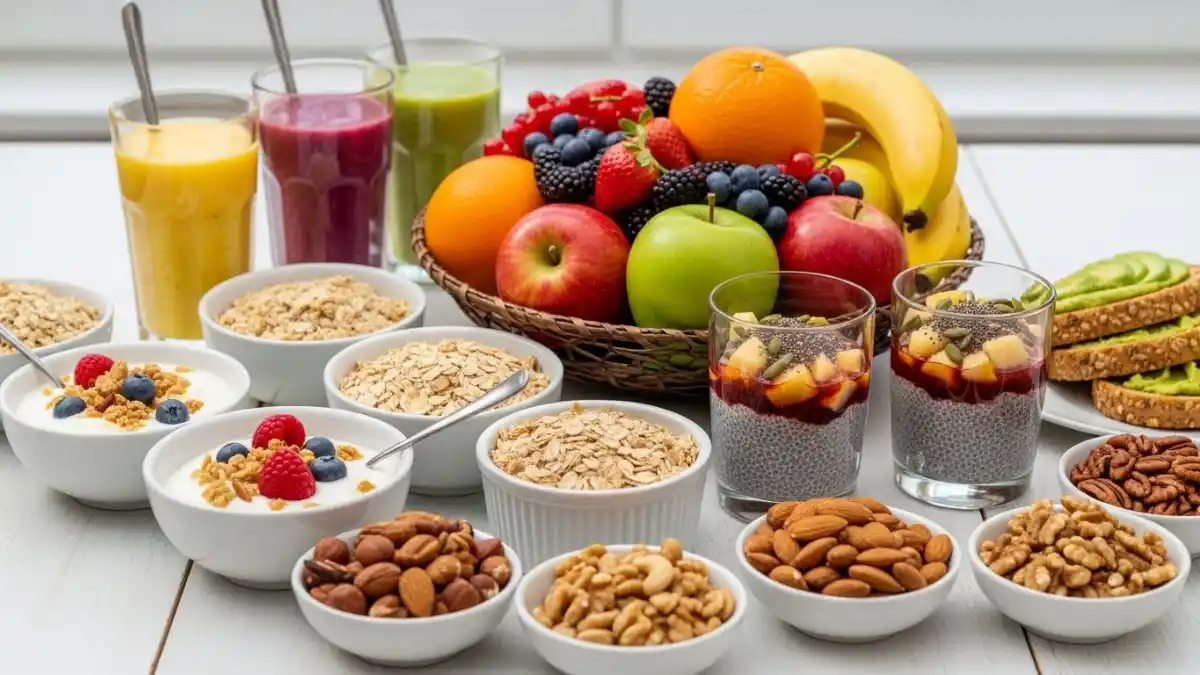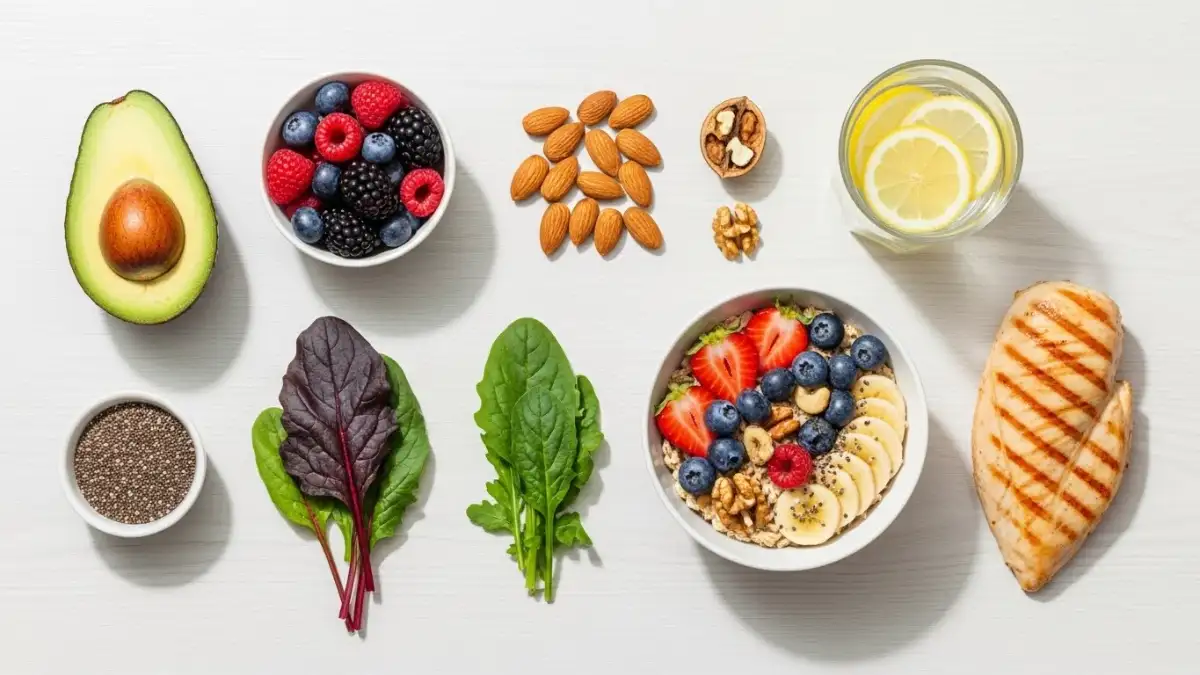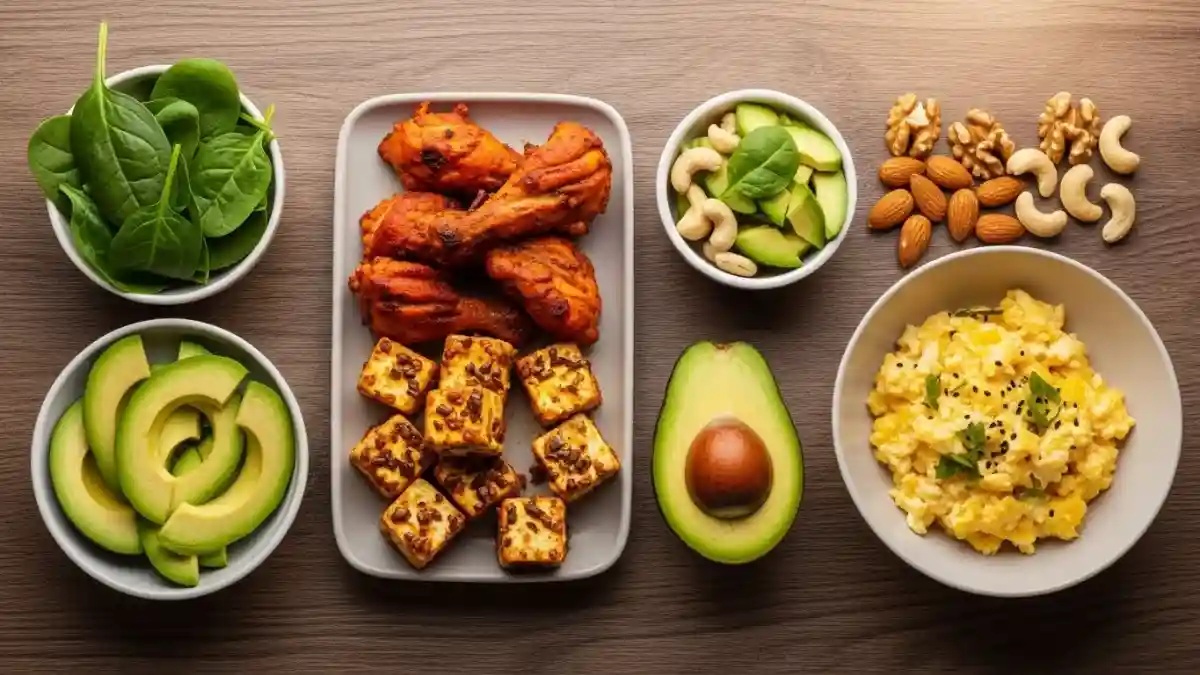By taking care Nourish your body and mind for a lifetime,
you can enjoy a lifetime of vitality.
Calcium
About 99% of the body’s calcium is stored in the bones and teeth. Getting enough calcium can help to prevent osteoporosis and keep bones strong and healthy throughout life.
How Much Calcium Do You Need?
- Age 19-50: 1,000 mg
- Age 51-70: 1,200 mg
- Age 71 and over: 1,200 mg
- Pregnant women: 1,000 mg
- Breastfeeding women: 1,300 mg
Food Sources of Calcium
Dairy products are excellent sources of calcium. Other good sources of calcium include:
- Leafy green vegetables, such as spinach, kale, and collard greens
- Fortified foods, such as cereal, orange juice, and bread
- Fish, such as salmon and sardines
- Tofu and tempeh
- Almonds and other nuts and seeds
Vitamin B12
Vitamin B12 is an essential nutrient that plays a vital role in many bodily functions, including Red blood cell production, DNA , Brain function ,Immune System.
How Much Vitamin B12 Do You Need?
- Adults : 2.4 mcg
- Pregnant women : 2.6 mcg per day,
- Breastfeeding women : 2.8 mcg per day.
Food Sources of Vitamin B12
Vitamin B12 is naturally found only in animal products. Good sources of vitamin B12 include Meat, Poultry, Fish, Eggs, Dairy products
Vitamin D
Vitamin D is essential for strong bones and teeth. It helps the body absorb calcium, which is essential for bone health. It also helps your muscles, nerves, and immune system work right.
How Much Vitamin D Do You Need?
- Age 19-50: 600 IU
- Age 51-70: 800 IU
- Age 71 and over: 800 IU
- Pregnant women: 600 IU
- Breastfeeding women: 600 I
How to Get Vitamin D
Sunlight: When our skin is exposed to sunlight, it produces vitamin D. However, it is important to note that too much sun exposure can increase the risk of skin cancer. Therefore, it is important to wear sunscreen and protective clothing when spending time in the sun.
Food: Good sources of vitamin D include fatty fish, such as salmon, tuna, and mackerel; eggs; and fortified foods, such as milk, orange juice, and cereal.
Magnesium
How much magnesium do you need?
- Adults 400-420 mg
- Men , Women 310-320 mg
However, some people may need more magnesium, such as athletes, pregnant women, and people with certain medical conditions.
Magnesium deficiency is relatively common, especially among people with certain medical conditions, such as diabetes, kidney disease, and inflammatory bowel disease, Weakness more Health related problem created.
Omega-3s
Omega-3 fatty acids are essential fats that the body cannot produce on its own. They are important for many bodily functions, Brain , Heart , Eye, Joint health problem.
Good food sources of omega-3 fatty acids include:
- Fatty fish, such as salmon, tuna, and mackerel
- Flaxseeds
- Chia seeds
- Walnuts
- Fortified foods, such as eggs and yogurt
The American Heart Association recommends that adults eat two servings of fatty fish per week. some people may need more omega-3 fatty acids, such as people with heart disease or high blood pressure.
Fiber
Fiber helps protect against strokes, helps you poop more regularly, and lowers your cholesterol and blood sugar. Women over 50 should get at least 21 grams a day, while men need 30 grams. Most people don’t get that much. That’s equal to about 6-8 servings of whole grains, or 8-10 servings of vegetables.
How to get more fiber:
- Eat more fruits, vegetables, and whole grains.
- Add beans, lentils, nuts, and seeds to your diet.
- Choose bran cereals and whole-wheat bread and pasta.
- Drink plenty of water.
Folate
It also known as vitamin B9, is an essential nutrient that plays a vital role in cell growth and development, especially in the early stages of pregnancy. Folate is also important for red blood cell production, DNA synthesis, and amino acid metabolism.
Folate deficiency is relatively common, especially among pregnant women, Birth defects, Anemia, Weakness, Headaches More health problems.
Potassium
Potassium helps to regulate blood pressure. A diet high in potassium and low in sodium can help to lower blood pressure, which can reduce the risk of heart disease and stroke.
Vegetables: potatoes, sweet potatoes, winter squash, spinach, kale, collard greens, Swiss chard, beet greens, turnip greens, tomatoes, tomato juice
Other foods: dairy products (milk, yogurt, cheese), fish, poultry, nuts, seeds
Zinc
Zinc is an essential mineral that plays a vital role in many bodily functions like, Immunity, Wound healing, Taste and smell, Vision, Cell growth and development.
The recommended daily intake of zinc for adults is 11 milligrams for men and 8 milligrams for women.
nourishing your body and mind is essential for a lifetime of vitality. By eating a healthy diet, getting regular exercise, and getting enough sleep, you can give yourself the best chance of living a long and healthy life.
- Eat a healthy diet.
- Get regular exercise.
- Get enough sleep.
- Manage stress.
By following these tips, you can Nourish your body and mind for a lifetime of vitality. THANK YOU !







